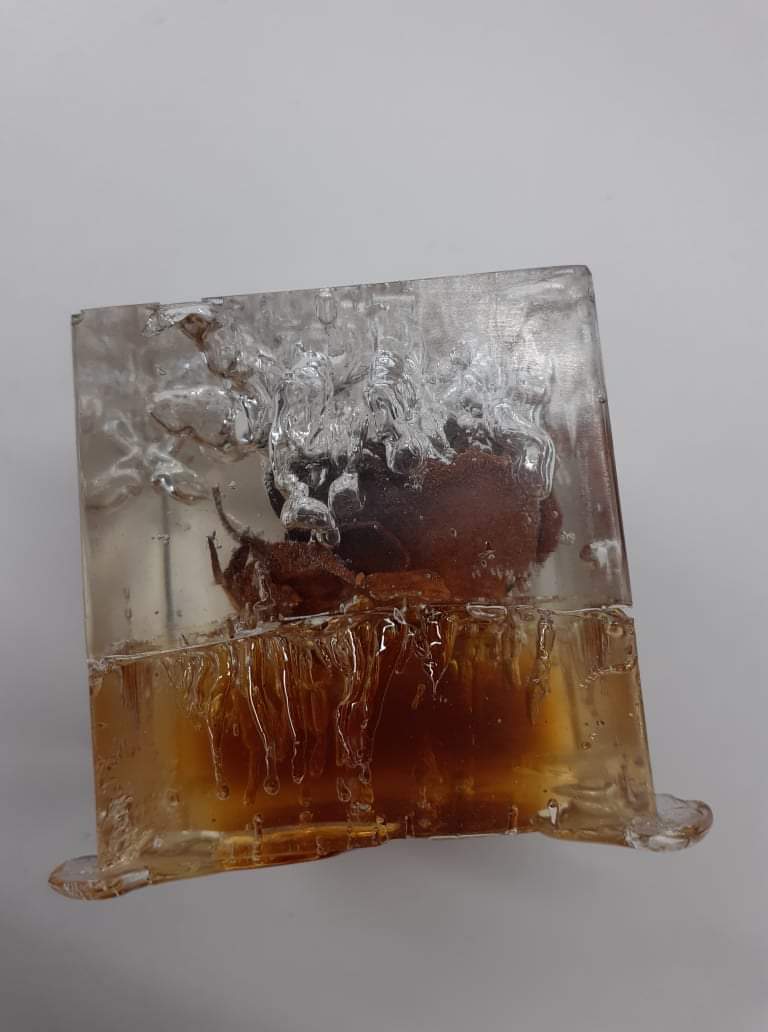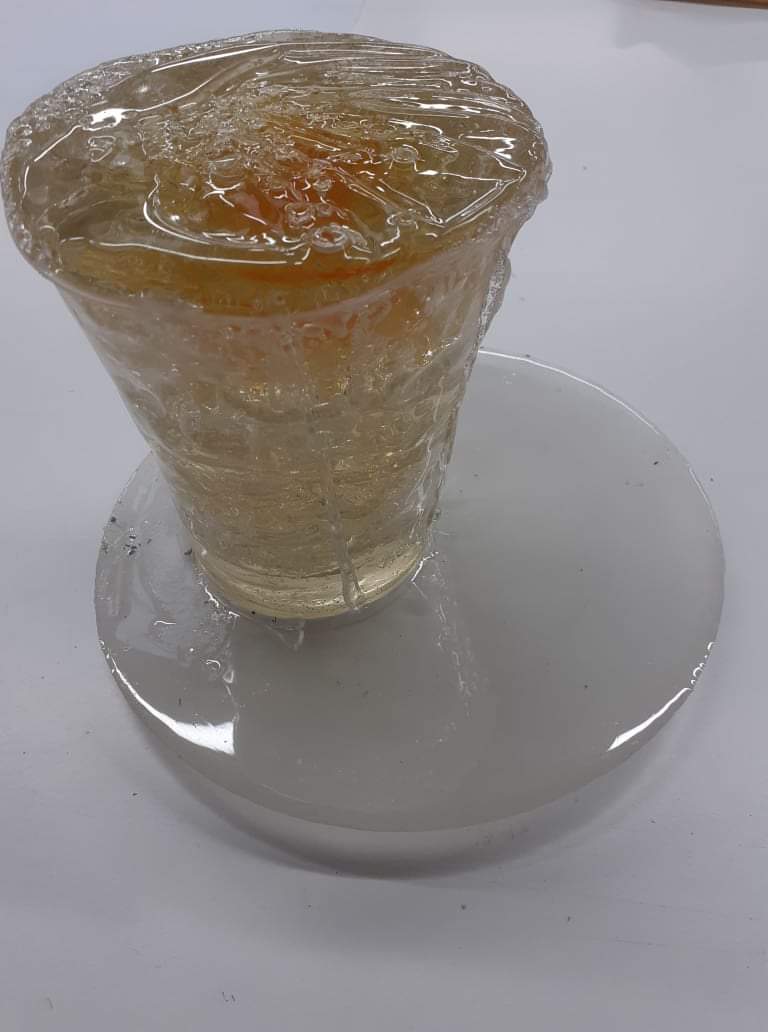What is an exothermic reaction and why is it undesirable when working with epoxy resin?
After mixing component A and B, the curing of epoxy resin begins, and generally an exothermic reaction occurs, releasing heat. For an ideal result, this heat release must be controlled and gradual. You can achieve this ideal process by following all the instructions provided by the manufacturer for the specific casting resin. Especially pay attention to adhering to the recommended working temperature.
##MEDAILONEK_EN_001##
If these instructions are not followed, even if you leave the resin in the mixing cup beyond its pouring thickness limit and volume, a very rapid exothermic reaction will occur, causing the resin to "boil over."
The temperature during this reaction will start to rise sharply, sometimes by several tens of degrees in a very short time, often within a minute or a few minutes. This will cause the resin to become very hot (sometimes over 200 oC), start to smoke, the surface will harden quickly, large bubbles will appear, the resin will often yellow and crack, thus becoming unusable.

Boiling over of the resin is unfortunately an irreversible process that not only destroys the resin and mold but also releases fumes and smoke that can be harmful to health. Also, remember the high temperature, which can cause burns. If you encounter an exothermic reaction, place the resin cup on a fireproof surface, ideally away from living areas, and monitor it for possible fire.
Never touch the cup or extinguish it with water, as water in the resin can accelerate the reaction. For this reason, we strongly advise that cups and fillers (including colors) must not contain water.

Various fillers such as small stones or sand can also trigger an exothermic reaction. Always adhere to the maximum allowable amount of fillers specified by the manufacturer and use only designated fillers in the resin. Also, pay attention to the ambient temperature where you are casting the resin, as it also affects the curing speed.
An exothermic reaction can also be initiated by a sudden increase in temperature if you hold a heat source (lighter, heat gun, etc.) on one spot of the casting resin for too long.

If you experience an unwanted exothermic reaction, do not despair. If you haven't encountered boiling over, it’s like you’ve never worked with resin. Stay calm and first protect your health.
##PRODUCT-WIDGETS-33671##
